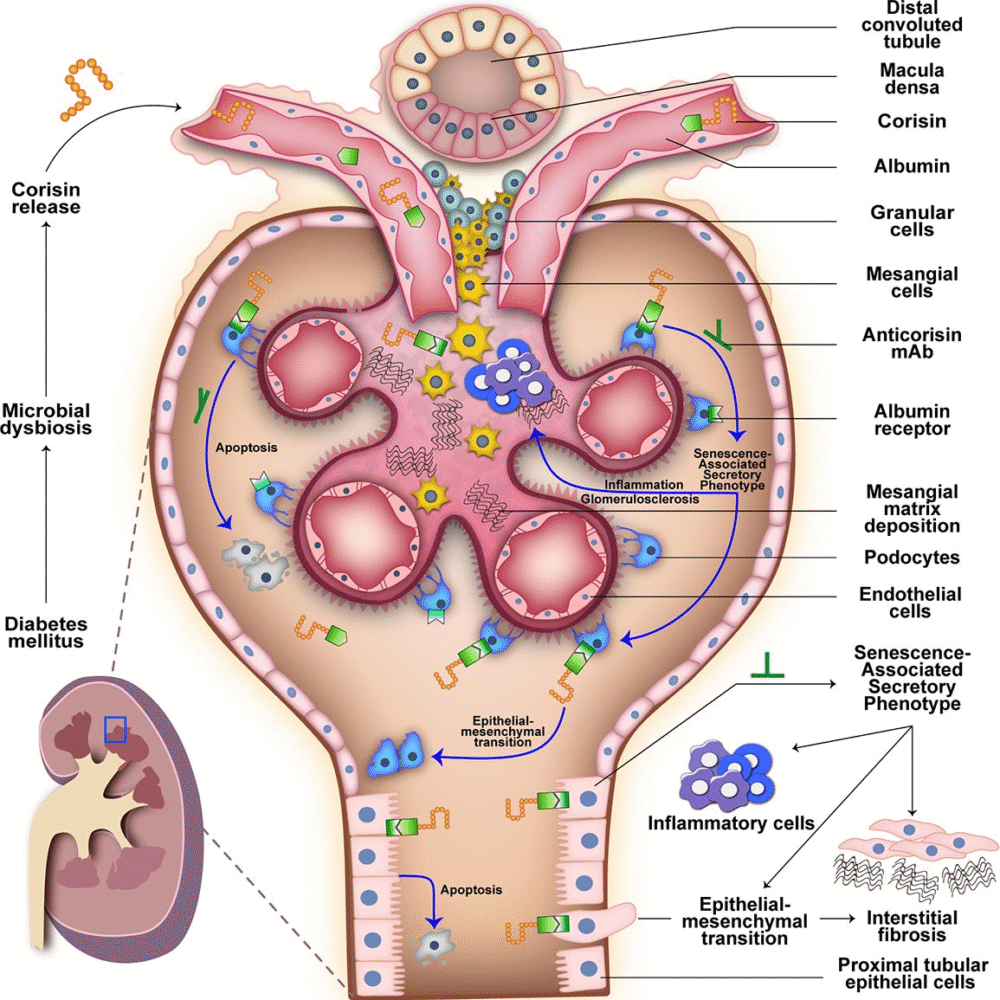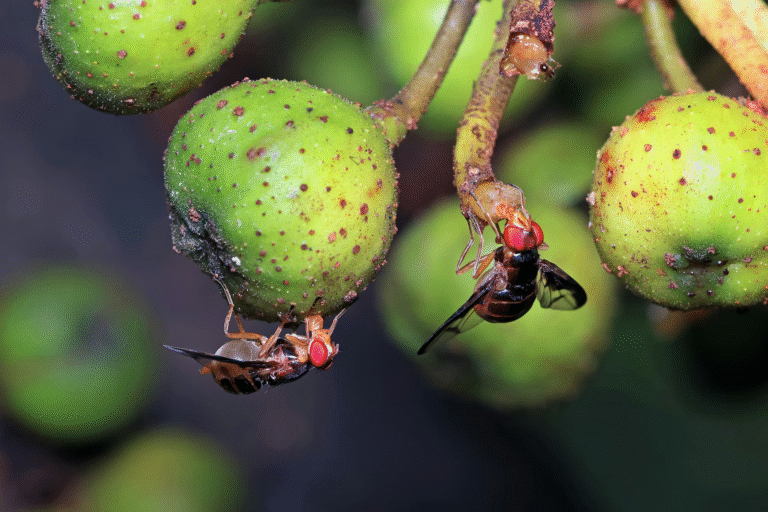Antibody Treatment Could Stop Gut Bacteria Molecule Driving Kidney Fibrosis

A new study from the University of Illinois Urbana-Champaign and Mie University in Japan has uncovered a surprising link between gut bacteria and diabetic kidney disease. Researchers found that a small bacterial molecule called corisin may play a hidden but critical role in triggering inflammation, scarring, and fibrosis in the kidneys. More importantly, they also demonstrated that blocking this molecule with antibodies could slow or even prevent this damaging process.
What is Corisin?
Corisin is a peptide produced by Staphylococcus bacteria in the gut. Until now, its role in kidney disease wasn’t fully understood. In this study, scientists found that patients with diabetic kidney fibrosis had elevated levels of corisin in their blood. The higher the concentration, the worse the kidney damage.

Using mouse models, the researchers confirmed the same trend. Corisin levels were significantly increased in animals with kidney fibrosis, and it became clear that this molecule was a driver of kidney injury.
How Corisin Damages the Kidneys
The team went further to track how corisin actually moves from the gut to the kidneys and causes harm. They discovered several key details:
- Transport mechanism: Corisin attaches itself to albumin, one of the most abundant proteins in human blood. This allows it to travel freely through the bloodstream.
- Release and entry: Once in the kidneys, corisin detaches from albumin and enters kidney cells.
- Cellular impact: Inside the cells, corisin accelerates cellular aging (senescence), increases apoptosis (programmed cell death), and promotes epithelial-to-mesenchymal transition (EMT), a process that leads to scarring.
- Outcome: These effects cause progressive inflammation, tissue scarring, and fibrosis, reducing kidney function over time.
This mechanism explains why long-term diabetes often results in kidney fibrosis, which is one of the leading causes of end-stage kidney failure worldwide.
Testing an Antibody-Based Solution
To confirm corisin’s role as the main culprit, the scientists tested an anticorisin antibody in mice with diabetic kidney disease. The results were striking:
- The antibody treatment slowed down cellular aging in kidney cells.
- It greatly reduced the amount of fibrosis and scarring.
- Kidney function decline was significantly delayed compared to untreated animals.
This proof-of-concept experiment suggests that targeting corisin with antibodies may provide a completely new therapeutic option for patients with diabetic kidney disease.
Why This Matters
Currently, treatments for diabetic kidney disease mostly focus on controlling blood sugar and blood pressure. Once fibrosis sets in, there are no therapies that can stop or reverse it. Patients often face only two options: dialysis or kidney transplantation.
This study offers a new perspective. By showing that a gut-derived molecule can directly cause fibrosis, and that blocking it can reduce the damage, researchers are opening the door to a potential disease-modifying therapy.
Next Steps for Research
While the findings in mice are promising, no antibody therapy against corisin is currently approved for human use. The researchers plan to test anticorisin treatments in larger animal models, such as pigs, to evaluate safety and effectiveness before considering human trials.
Additionally, the University of Illinois and Mie University have filed a joint invention disclosure on corisin antibodies, signaling their interest in eventually translating this discovery into a therapeutic product.
Research Team and Support
The study was led by Professor Isaac Cann at the University of Illinois and Professor Esteban Gabazza at Mie University, with contributions from Dr. Taro Yasuma, the first author of the study.
The work was supported by multiple organizations, including:
- Japan Science and Technology Agency
- Japan Society for the Promotion of Science
- Takeda Science Foundation
- Japan Association for Diabetes Education and Care
- Eli Lilly Japan Innovation Research Grant
- Daiwa Security Foundation
- Charles and Margaret Levin Family Foundation
Reference
TL;DR
Researchers identified corisin, a gut bacteria molecule, as a major driver of diabetic kidney fibrosis. Corisin travels via albumin to the kidneys, causing cell damage and scarring. In mice, anticorisin antibodies slowed kidney damage, offering hope for future therapies.





